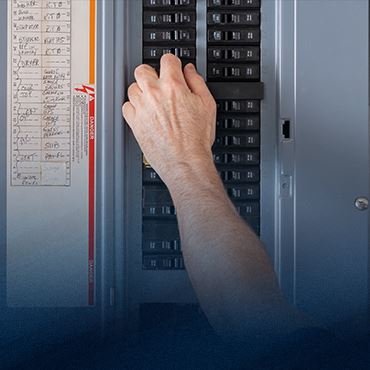NATO’s Chief Demonstrates His Own Incapabilities
.jpeg)
NATO’s Chief Demonstrates His Own Incapabilities
Most people in the West and nearly all the mainstream media share their preferred narrative of the Ukraine war. It’s a conflict between Russia, an aggressor existentially committed to aggression and an unsuspecting victim, Ukraine, whose sovereignty was violated without provocation. An alternative narrative, far less popular but impossible to dismiss entirely, states that this has from the start been a proxy war between the United States and Russia. It has served simply to prolong a state of affairs known as the Cold War, that in appearance was paused with the collapse of the Soviet Union in the final decade of the 20th century.
How politicians and journalists account for the relationship between the principal actors — first of all, Ukraine and Russia, but also NATO, the US and the European Union — depends on the individual’s preference for a certain style of standard narrative. One option is the David and Goliath template. This one is complicated by the fact that David (Ukraine) recruited Godzilla (the US and NATO) to join the battle, unless — given the obvious presence of Godzilla — one prefers to think of this as Godzilla vs. King Kong (Russia), with Ukraine simply playing the role of a Hollywood extra squashed by the massive foot of one or the other adversaries.
Another option is Rudyard Kipling’s “East is East and West is West,” where “two strong men stand face to face, tho’ they come from the ends of the earth!” That narrative is a recipe for yet another forever war.
Given the fatigue associated with rooting for one side or the other in the unresolvable conflict, Kipling may already have won the day, which explains why Trump’s 24 hours are long past. The language of the strong man of the West (NATO) seems to bear that out. Ukrainska Pravda, Ukraine’s leading online newspaper reported this recent assessment by Mark Rutte, NATO’s general secretary, of the nature of the Russian threat.
“Rutte believes that Moscow’s current capabilities in space are outdated and not on par with the West: ‘Developing nuclear weapons in space is, therefore, a way for Russia to improve its capabilities. This is a matter of great concern’.”
Today’s Weekly Devil’s Dictionary definition:
Capabilities:
A term used to qualify the level of threat posed by a rival or adversary, which will be systematically underestimated when the purpose of the political rhetoric is to signal the opportunity to prepare for confrontation and overestimated when the purpose is to instill fear, justifying mobilization.
Contextual note
The key idea Rutte is putting forward is contained in the phrase “a matter of great concern.” His logic, or lack thereof, derives from the ambiguity of the meaning of “capabilities.” One should always seek to understand reality and will be justified in feeling concerned about what it turns out to be. In other words, reality, when it proves to be threatening, is a matter of great concern. In that sense, awareness of existing power and capacity to inflict damage on the part of someone one does not trust can always be a matter of great concern.
But capabilities can also suggest some future potential, even though, especially in military parlance, it doesn’t literally mean that. Being capable of developing capabilities is simply not the same thing as possessing capabilities.
So, what is Rutte saying here? First, he proudly asserts that NATO is strong because Russia is weak, given that its “current capabilities in space are outdated.” That should sound reassuring. If he can say Russia’s capabilities are outdated it implies that NATO’s own are up to date. Just as in Zeno’s intriguing (but specious) paradox of Achilles racing a tortoise that was given a significant head start, because Achilles possesses the capability of speed, which the tortoise clearly lacks, it doesn’t matter how many times we divide the diminishing distance between the trailing athlete and the advancing tortoise, Achilles knows he will overtake his competitor and win the race.
Rutte wants us to believe Russia is weak so that NATO, in the role of Achilles, can believe in its strength and speed. Fortified by that knowledge we can boldly plot our course to win the race, confident that we will win. But then Rutte hits a serious snag. If we believe
Russia is weak, NATO needn’t spend money to tool up or even have a reason to exist.
To overcome his equally specious paradox, Rutte feels obliged to evoke a future in which Russia may become strong. “We’re aware of reports that Russia is exploring the possibility of deploying nuclear weapons in space.” Does the word “capabilities” have the same meaning, or indeed any meaning when evoking “a future” when Russia “may become strong?”
In short, “capabilities” is a word Humpty Dumpty would undoubtedly cherish, as Lewis Carroll indicates in this quote from his conversation with Alice: “‘When I use a word,’ Humpty Dumpty said in rather a scornful tone, ‘it means just what I choose it to mean – neither more nor less.’” For Rutte, Russia’s real capabilities are weak but its imagined capabilities in the future may perchance be worryingly strong. Any rational person would deem the semantic ambiguity of the NATO chief’s reasoning “a matter of great concern.”
Historical note
NATO was born just over 75 years ago, in the immediate aftermath of World War II. Whether its historical justification was clearly reasoned or not, its creation responded to two perceived goals. The first was to provide a structure that might prevent European nations from behaving in the irresponsible manner that had led to two devastating World Wars. If the stronger nations of Europe could be united militarily and take orders from the strongest nation of all, on the opposite side of the Atlantic, they would find it difficult to go to war amongst themselves.
The second reason was both ideological and financial. It was the fear and loathing of communism. This became the obsessive theme emanating from the US and the United Kingdom. The dominant Anglo-Saxon cultures proved to be exceptional among the concert of nations in one important respect: The sense of identity, as promoted by the governing elite, grew far more significantly from their economic ideology than from their cultural, religious and linguistic traditions. Their leaders suspected the vulnerability of their hyper-competitive ideology that could potentially alienate the subservient castes, including the middle class. They lived in permanent fear of an assault on the undefined but fully functioning system called capitalism, whose architecture and operating manual had been designed and distilled out of the experience of four centuries of European colonialism.
Comments
You must be logged in to comment.
Latest Articals
-
Why Mental Health Support Is Essential for Long-Term Wellness
Long-term wellness is not only about physical fitness or the absence of illness; it also depends heavily on emotional stability and psychological balance. In today’s fast-paced world, people face constant pressures from work, relationships, finances, and social expectations. Without proper support, these pressures can slowly affect emotional health. Access to Mental Health Resources plays a vital role in helping individuals manage challenges, maintain balance, and build a healthier future.Understanding Emotional Well-Being and Its ImportanceEmotional well-being influences how people think, feel, and respond to everyday situations. When mental health is neglected, even small problems can feel overwhelming. Over time, unmanaged stress and emotional strain may lead to anxiety, burnout, or persistent low mood. Recognizing emotional needs early allows individuals to take proactive steps before issues become deeply rooted.Support systems focused on mental health help people understand their emotions, develop self-awareness, and respond to life’s challenges more effectively. These systems are not...
-

Your Go-To Commercial & Residential Plumbing Experts in Conyers – tksons
Plumbing is one of those essential systems that often goes unnoticed—until something goes wrong. From unexpected leaks to major system failures, plumbing issues can disrupt both homes and businesses in an instant. That’s why having experienced commercial plumbing contractors in Conyers and dependable residential plumbing services in Conyers is crucial. tksons has become a trusted name in the Conyers area by delivering reliable, efficient, and long-lasting plumbing solutions for every type of property.Comprehensive Commercial Plumbing Services in ConyersCommercial plumbing requires precision, experience, and a deep understanding of complex systems. Businesses depend on properly functioning plumbing to maintain hygiene, safety, and daily operations. As leading commercial plumbing contractors in Conyers, tksons provides tailored plumbing services for offices, retail stores, restaurants, apartment complexes, and industrial facilities.Our commercial services include pipe installation and repair, water supply line management, drainage and sewer services, restroom plumbing, and preventive maintenance programs. We understand that downtime can be costly, so our team works efficiently...
-

Expert Electrician in Buckhead Offering Safe & Modern Electrical Solutions | mccelec
Electrical systems play a crucial role in keeping homes and businesses safe, functional, and efficient. From powering daily activities to supporting advanced technology, reliable electrical work is essential. If you’re searching for professional electrical services in Buckhead, mccelec is your trusted local choice, delivering dependable solutions backed by experience, safety, and quality workmanship.The Importance of Hiring a Qualified Electrician in BuckheadElectrical issues are not just inconvenient—they can be dangerous if handled improperly. Faulty wiring, overloaded circuits, or outdated panels can increase the risk of fires, power failures, and equipment damage. Hiring a certified electrician Buckhead property owners trust ensures that every job is completed according to safety standards and local electrical codes.With mccelec, you get skilled electricians who understand the complexities of modern electrical systems and provide solutions that are both effective and long-lasting.Complete Residential Electrical Services in BuckheadYour home’s electrical system should be safe, reliable, and designed to meet your lifestyle needs. mccelec offers comprehensive...
-

Best Computer Academy in Jaipur – Learn Skills That Build Your Career
In today’s digital world, computer education is no longer optional—it is a necessity. Whether you are a student, job seeker, or working professional, learning the right computer skills can open many doors. Jaipur has become a growing hub for quality education, and choosing the right institute can make a big difference in your future.If you are searching for the best computer academy in Jaipur, best training center in Jaipur, or best coaching institute in Jaipur, this blog will guide you clearly and honestly.Best Computer Academy in JaipurWhen students search for the Best Computer Academy in Jaipur, they look for quality education, practical training, and career support. A good computer academy should focus on real-world skills, updated courses, and experienced trainers.GPS Computer Academy, Jaipur stands out because it offers AI-Powered Education and Training designed for today’s competitive world. The academy focuses on helping students understand concepts easily and apply them practically....
-
.jpeg)
Adult Orthodontic Options for Healthier, Aligned Smiles in Sea Girt, NJ
Adult orthodontic treatment has become an increasingly popular choice for improving both dental health and appearance. At Your Dentalist in Sea Girt, NJ, adults have access to modern orthodontic options designed for comfort, discretion, and efficiency. Straighter teeth are not only about aesthetics but also about maintaining long-term oral health.Many adults seek orthodontic care to correct shifting teeth, bite problems, or alignment concerns that were never treated earlier. With today’s advanced solutions, achieving a healthy, aligned smile is more accessible than ever. Why Adults Choose Orthodontic TreatmentAdult orthodontic care addresses issues that can affect daily comfort and dental health. Misaligned teeth may contribute to uneven wear, jaw discomfort, and difficulty cleaning certain areas. Orthodontic treatment helps correct these problems and supports overall oral function.Beyond health benefits, orthodontic care enhances confidence. A well-aligned smile often improves personal and professional interactions. Common Orthodontic Concerns in AdultsAdult patients often experience dental changes over...
-

How AI-Powered Link Building Is Replacing Traditional SEO Outreach
For years, link building meant endless emails, uncertain replies, and backlinks that didn’t always improve rankings. In 2026, that model is breaking fast. Businesses now want clarity, control, and competitive data—not guesswork.This shift has pushed SEO teams toward intelligent platforms that combine link building services, link building marketplaces, and SEO link building services into one streamlined workflow. Vefogix sits right at the center of this evolution.Link Building Services: Moving Beyond Random BacklinksLink building services are designed to help websites earn authoritative backlinks that improve search visibility. But modern SEO demands more than simple link placement.Outdated services often:Focus on quantity instead of relevanceHide publisher detailsProvide links without performance insightsToday’s link building services are strategy-driven, guided by competitor data and real-world results.How Vefogix Redefines Link Building ServicesVefogix applies AI to the entire link-building process:Identifies backlink sources already working for competitorsHighlights trusted, niche-relevant websitesEliminates risky or low-value domainsGives full transparency before you investThis...